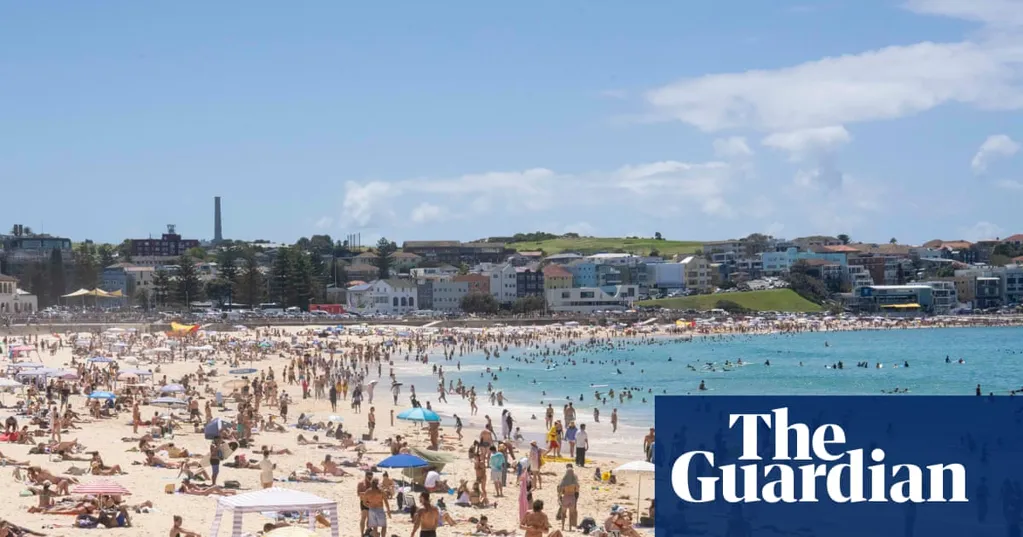A trial to remove shark nets from three Sydney and Central Coast beaches has been welcomed by scientists who say the nets create a false sense of security and are ineffective at preventing shark bites.
Shark nets, about 150 metres long and installed roughly 500 metres offshore at selected beaches in New South Wales and Queensland, were "like a table tennis net on a soccer pitch", said Lawrence Chlebeck, a marine biologist at Humane World for Animals.
"They're not the barriers that people think they are," he said. "Sharks can easily swim around, underneath, over the top. In fact, 40% of sharks are caught on the inside of the net - so these animals have already been to the beach."
The nets also "indiscriminately" catch marine life, killing not just target shark species, but also turtles, dolphins and other marine life, he said.
NSW first introduced the nets in the 1930s, with the program since expanded to include 51 beaches between Newcastle and Wollongong.
Nets were only one component of the state's shark management program, which also included drone surveillance, shark tagging and real-time detection, SMART drumlines (where sharks were caught, tagged and released) and community education.
Last week the state government asked three councils - Waverley, Northern Beaches and Central Coast - to each nominate a beach where the nets could be removed.
That was a good first step, Chlebeck said, acknowledging "it would have been tough for a government to end a program with almost a century of legacy".
Other states such as South Australia and Western Australia had already "moved with the times" and did not use culling or shark nets, he said. Instead they relied on non-lethal measures like surveillance, shark monitoring, public education and rapid response.
In contrast, in May the Queensland government announced it would expand the use of lethal controls including shark nets and baited drumlines, a move one expert described as a "tough on sharks" approach that was more about culture wars than implementing evidence-backed policy.
In South Australia, Dr Brianna Le Busque has been researching public attitudes towards sharks and shark bites for almost 10 years.
The environmental science program director at the University of South Australia said while the public's fear of sharks remained steady, there had been a shift in attitudes towards greater support for non-lethal methods.
"People want to be protected, and they want to feel safe in the water, but there's less and less support for lethal mitigation," Le Busque said.
Many people were not aware that the nets were actually lethal - designed to catch and kill sharks rather than acting as a barrier. "We're essentially talking about a big fishing net floating out in the ocean," she said.
The trial removal in NSW was a positive step, Le Busque said, given the nets did not offer protection and harmed marine life. She pointed to Australian research published last year into 196 unprovoked shark incidents, which found no difference in unprovoked human-shark interactions at netted versus non-netted beaches since the 2000s.
Even so, their removal would be a big change for people living in those areas, Le Busque said. From that perspective, the trial provided an opportunity to build community awareness and demonstrate the effectiveness of other non-lethal mitigation techniques.
The NSW agriculture minister, Tara Moriarty, said the safety of beachgoers was the government's "number one priority".
In determining its approach to the upcoming season, Moriarty said the government would consider evidence from the last few seasons and feedback from local councils.
Councils have until 22 August to respond to the NSW government on their preferred option for the removal of nets for 2025-26 patrol season.
Waverley council said its support for the trial was contingent on the increased use of drones and SMART drumlines resourced by the state government.
"Waverley Council's position is clear: the safety of our community comes first,"
the mayor, Will Nemesh, said.
Shark interactions and bites are rare in Australian waters. In the last 10 years, an average of 20 people were injured and 2.8 people killed in shark incidents each year, according to the Australian Shark Incident Database. That is compared to 150 coastal drowning deaths last year, including 84 drownings at beaches.
